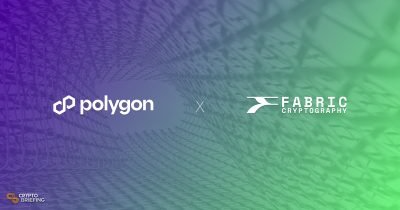Home » Ecosystem » Polygon invests $5M in ‘VPU’ chips that could perhaps perhaps also lower zero-records proof costs
Sep. 10, 2024
Polygon Labs has partnered with hardware maker Cloth to speed zero-records proof generation for its AggLayer finishing up.

Key Takeaways
- Polygon Labs invests $5M in servers with personalized zero-records cryptography chips.
- The original technology could perhaps perhaps also reduce the adoption timeline of zero-records proofs from years to months.
Share this article
Polygon Labs, a significant Ethereum layer-2 developer, has launched plans to aquire $5 million price of server programs optimized for zero-records (ZK) cryptography processing from hardware maker Cloth.
The acquisition is segment of a partnership aimed at accelerating the development of Polygon’s AggLayer, an interoperability resolution designed to enable seamless token transfers between affiliated blockchain networks. Cloth is producing personalized zero-records chips, called verifiable processing items (VPUs), particularly for the AggLayer finishing up.
Polygon’s ZK crew has been participating with Cloth to kind VPUs tailored for its prover libraries, Plonky2 and Plonky3. These provers are indispensable parts in blockchain programs built around zero-records cryptography, which has emerged as a key focal point for Polygon and a sizzling topic within the crypto industry.
“Implementing this tech will massively speed the development of the AggLayer, bringing true-time, moderately priced proofs […] and much lower proving costs than previously thought doubtless within the medium-time-frame,” Bjelic stated.
Boosting zero-records tech for lower costs and sooner transactions
The partnership follows Cloth’s recent $33 million Series A funding round, whereby Polygon Labs participated. Cloth’s VPUs are personalized chips designed to optimize cryptography and blockchain processes. According to Polygon co-founder Mihailo Bjelic, these specialised chips could perhaps perhaps also vastly speed the timeline for wider adoption of zero-records technology, slicing out the time required for development and be taught.
“Cloth’s VPUs can speed the timeline for wider adoption of zero-records technology from three to 5 years to six to 365 days,” Bjelic claims. He added that imposing this technology would “massively speed the development of the AggLayer, bringing true-time, moderately priced proofs that no person thought would attain for years.”
By increasing hardware particularly optimized for ZK-proof generation, the partnership goals to beat recent barriers and pave the fashion for added efficient and scalable blockchain alternate suggestions. In related records, Polygon has begun migrating its MATIC tokens to POL, working in opposition to a brand original ‘hyperproductive’ segment for the token’s utility.
Share this article


